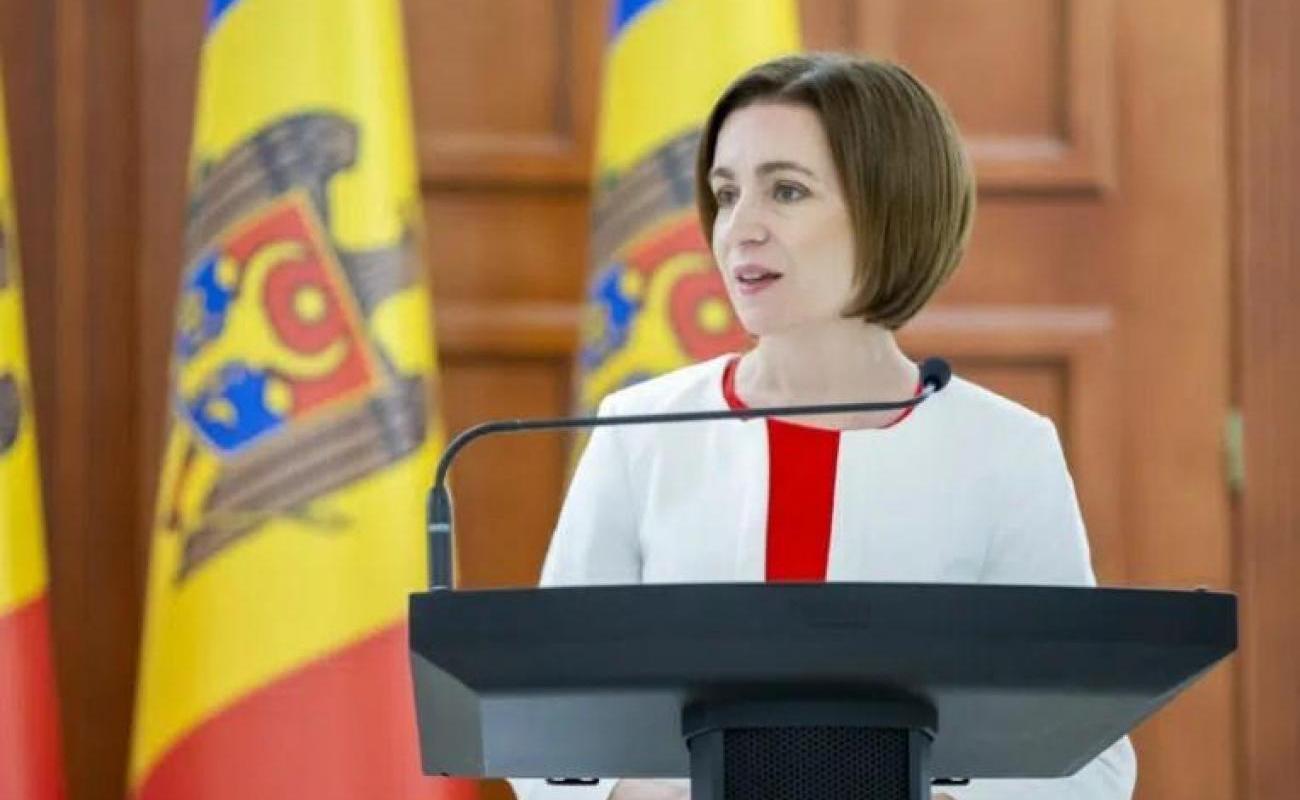What is behind the new tightening of relations between Moldova and Russia?

Moldovan President Maia Sandu has accused Russia of planning to forcibly overthrow the pro-European leader of the country with the help of saboteurs, which the Kremlin denies.
Relations between Russia and Moldova appear to be increasingly strained after President Maia Sandu accused Moscow of plotting to topple her country's government by force in order to snuff out European Union aspirations, which the Kremlin has denied.
Sandwiched between Ukraine and Romania, Moldova has often been at the center of the struggle between Moscow and the West.
Since the start of Russia's invasion of Ukraine in February 2022, tensions in Moldova have occasionally risen, particularly over the Kremlin-backed breakaway region on its eastern border, where Russia has stationed around 1,500 troops.
Here's what you need to know about the new escalation:
Why did the Moldovan president accuse Russia of planning a coup?
On Monday, President Sandu accused Russia of planning to violently overthrow the country's pro-European leadership, with the help of saboteurs disguised as anti-government demonstrators.
Under the guise of a "protest of the so-called opposition," the saboteurs would aim to "overthrow the constitutional order and replace the legitimate government of Moldova with an illegitimate one," Sandu said at a press conference.
"The Kremlin's attempt to bring violence to our country will not succeed," she added.
The statement came after Ukrainian President Volodymyr Zelensky said last week, at the European Union summit in Brussels, that Kiev "intercepted the plan of the Russian intelligence service to destroy Moldova."
Moldova, a country of 2.6 million people, which neighbors Romania and Ukraine, received the status of a candidate for EU membership in the summer of 2022.
Russia, which has troops in the breakaway Moldovan region of Transnistria, is furious at the prospect of former Soviet republics joining the EU.
Why did Moldova close its airspace?
Moldova temporarily closed its airspace on Tuesday and Romania briefly raised fighter jets after authorities in both countries reported mysterious balloon-like objects flying in their skies.
The incidents happened around midday local time and briefly raised concerns in the two eastern European countries, neither of which said where they thought the objects came from.
The events followed a series of similar incidents this month in the US, where objects shot down by American planes were discovered.
Among them was a Chinese balloon that flew over American airspace.
China claims that it is a weather balloon that accidentally veered off course.
During the last year, the war in Ukraine caused security problems, as the remnants of Russian missiles fell on Moldovan territory.
In the latest incident, cruise missiles flew over Moldova and Romania, while they fell in Ukraine on Friday, the Ukrainian commander said.
What does Russia say about Moldova's claims?
Russia on Tuesday dismissed as "completely unfounded" accusations that Moscow planned to violently overthrow the country's pro-European leadership with the help of saboteurs.
"Such claims are completely unfounded and unsubstantiated," the Russian Foreign Ministry said, accusing Ukraine of trying to pit Moldova against Russia and accusing Moldovan authorities of Russophobia.
"Unlike Western countries and Ukraine, we do not interfere in the internal affairs of Moldova and other countries of the world," said the Ministry of Foreign Affairs in Moscow.
"Russia does not pose a threat to the security of the Republic of Moldova," it added, noting that "stable and friendly relations" with Russia could benefit Moldova.
For years, the Kremlin has sought to keep post-Soviet states like Ukraine and Moldova in its sphere of influence, but both countries have turned to the West.
What did the US say about the claims?
Responding to Sandu's accusations, the US expressed support for Moldovan sovereignty.
"We are deeply concerned by reports of a Russian plot to destabilize the democratically elected government of Moldova," State Department spokesman Ned Price said.
"Russia has a long history of malign influence - both in Moldova and in the region. That is why we have worked closely with Moldova to build its political resilience and counter Russia's long-term efforts to undermine Moldova's democratic institutions," he told reporters in Washington.
